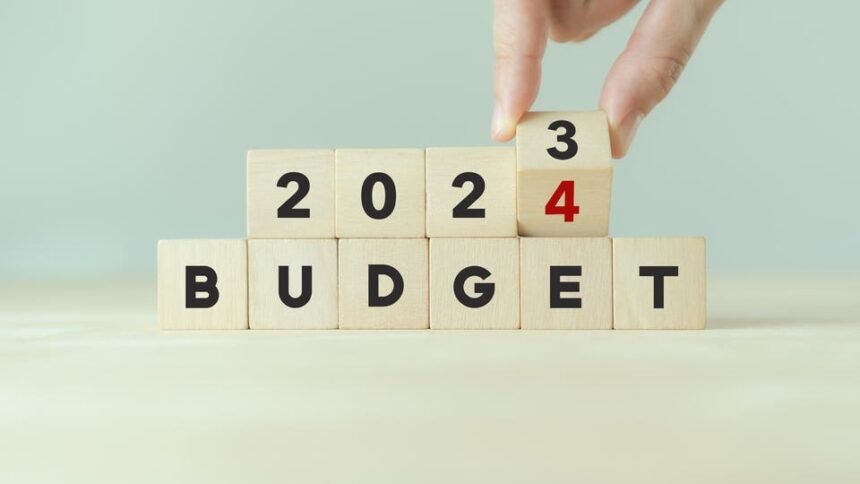Managing personal finances effectively is key to living a financially stable and stress-free life. Whether you’re saving for a big purchase, planning for retirement, or just trying to make sure you have enough for the future, having the right strategies in place can make all the difference. With the changing economic landscape in 2024, it’s important to update your approach to personal finance and budgeting to ensure long-term financial health. This article covers simple, yet effective personal finance tips, budgeting strategies, and investment advice to help you take control of your money.
1. Create a Realistic Budget
The foundation of personal finance success starts with a realistic budget. A budget is essentially a plan for your money, allowing you to see how much you earn, spend, and save each month. In 2024, the rising cost of living makes budgeting even more critical.
Here’s how to create a budget:
- Track your income and expenses: Write down all sources of income and list all your expenses, from rent to groceries. You can use budgeting apps or spreadsheets to make this easier.
- Separate needs from wants: Prioritize essential expenses like rent, utilities, and groceries over discretionary spending like dining out or entertainment.
- Set spending limits: Decide how much you want to spend in each category and stick to it. This will prevent you from overspending and going over your budget.
A good rule to follow is the 50/30/20 rule: 50% of your income should go toward necessities, 30% toward wants, and 20% toward savings and debt repayment.
2. Automate Savings
Saving money is a vital part of financial planning, and one of the easiest ways to save consistently is to automate your savings. By setting up automatic transfers from your checking account to your savings account each month, you can ensure that you’re regularly setting money aside without having to think about it.
- Set a savings goal: Whether it’s an emergency fund, a vacation, or a new car, having a goal will motivate you to save.
- Start small: If you’re new to saving, start by setting aside a small percentage of your income, such as 5% or 10%. Over time, you can increase this amount as you get more comfortable.
- Use high-yield savings accounts: In 2024, consider using high-yield savings accounts that offer better interest rates than traditional savings accounts. This allows your money to grow faster while still being accessible in case of emergencies.
3. Cut Unnecessary Expenses
In today’s fast-paced world, it’s easy to lose track of where your money goes. A common budgeting tip is to cut back on unnecessary expenses. Small expenses like coffee runs, subscription services, or impulse buys can add up over time.
Here’s how to cut back:
- Review subscriptions: Cancel subscriptions you don’t use or need, such as streaming services or gym memberships.
- Cook at home: Eating out can be costly. Plan your meals and cook at home to save money on food.
- Avoid impulse shopping: Before making a purchase, ask yourself if it’s something you truly need or if it can wait.
By making small changes in your spending habits, you’ll be able to free up more money to put toward savings or investments.
4. Build an Emergency Fund
Life is unpredictable, and having an emergency fund can give you peace of mind if unexpected expenses arise. Experts recommend having at least three to six months’ worth of living expenses saved in an easily accessible account. This fund can be used for things like medical emergencies, car repairs, or job loss.
- Start with small contributions: Even if you can only save $50 a month, that’s better than nothing. Over time, you’ll build a substantial cushion.
- Keep it separate: Open a separate savings account specifically for your emergency fund to avoid dipping into it for everyday expenses.
5. Invest for the Future
Investing is one of the best ways to grow your wealth over time. In 2024, with inflation and fluctuating markets, having a solid investment strategy is key to staying ahead.
- Start early: The earlier you start investing, the more time your money has to grow. Even small investments made consistently can add up significantly over time.
- Diversify your portfolio: To minimize risk, diversify your investments by spreading your money across different types of assets like stocks, bonds, and real estate.
- Consider index funds: If you’re new to investing, index funds are a good option because they track the performance of the market and typically offer steady returns over time.
- Use retirement accounts: Take advantage of retirement accounts like 401(k)s or IRAs to save for the future while benefiting from tax advantages.
6. Pay Off High-Interest Debt
Debt can be a major obstacle to financial success, especially if it comes with high-interest rates. In 2024, make paying off high-interest debt a priority, especially credit card debt, which can quickly spiral out of control if not managed properly.
- Focus on high-interest debt first: Use the debt avalanche method, where you focus on paying off debts with the highest interest rates first while making minimum payments on other debts. This strategy saves you the most money in interest over time.
- Consolidate debt: If you have multiple debts, consider consolidating them into a single loan with a lower interest rate. This can make payments more manageable and reduce the amount of interest you pay.
Conclusion
Personal finance and budgeting in 2024 require a thoughtful approach to managing money. By creating a realistic budget, automating savings, cutting unnecessary expenses, investing wisely, and staying disciplined with debt and retirement planning, you can take control of your financial future. Implementing these personal finance strategies can help you navigate economic uncertainties and achieve long-term financial security.





